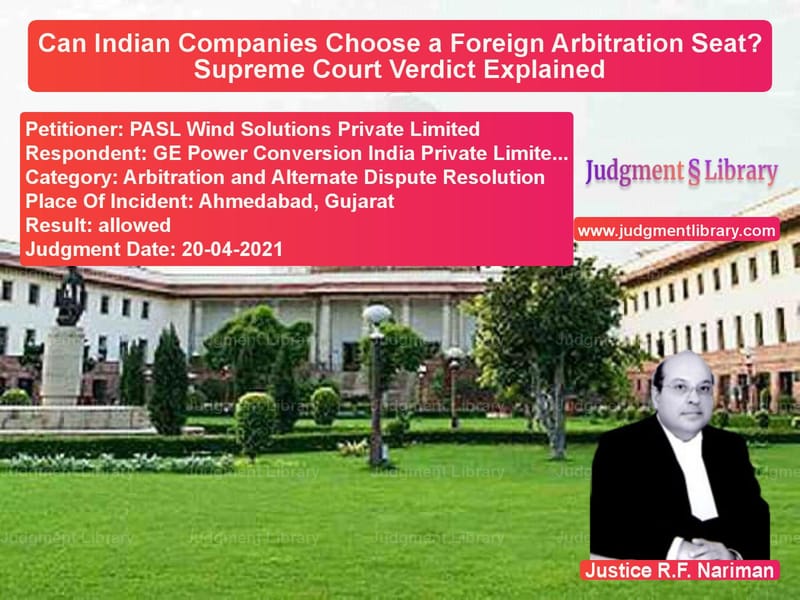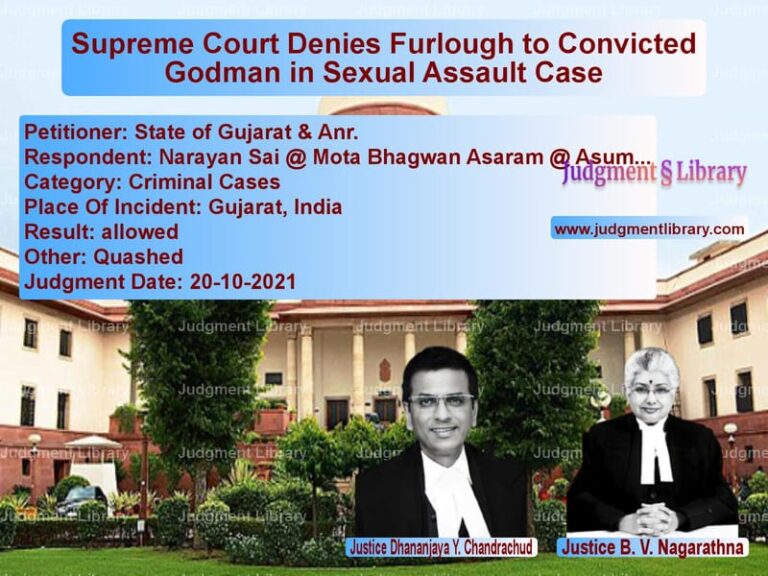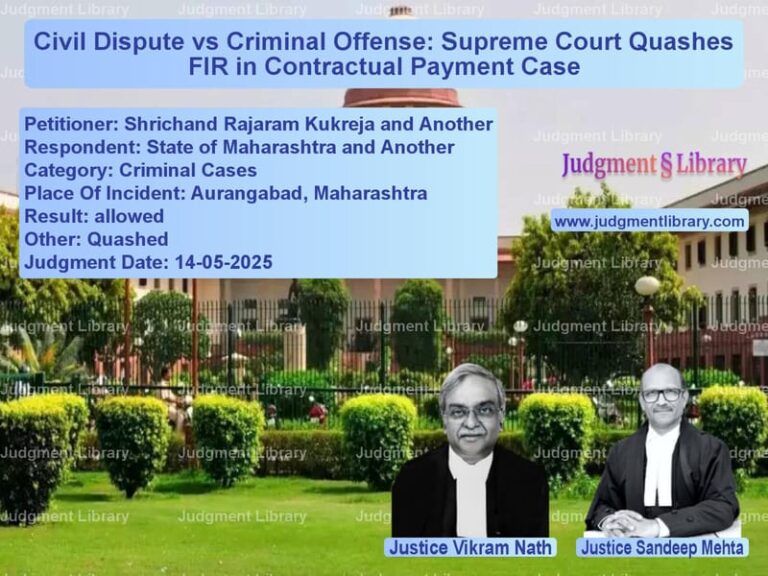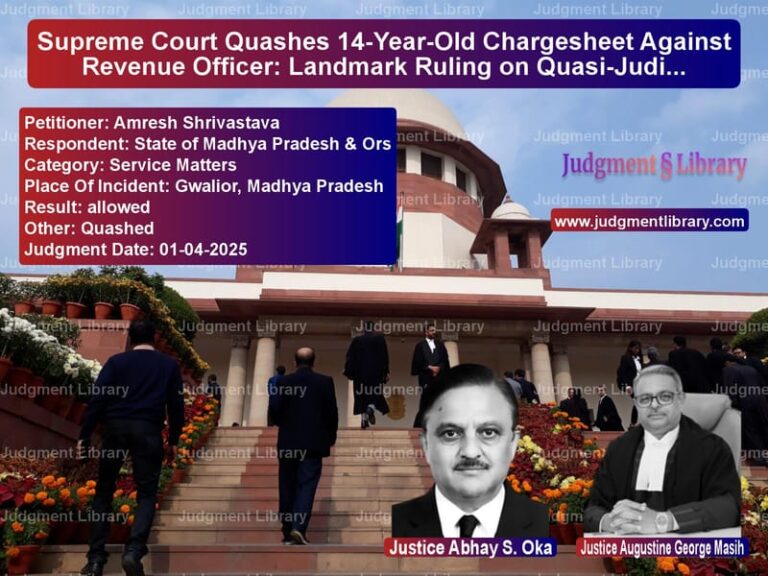Can Indian Companies Choose a Foreign Arbitration Seat? Supreme Court Verdict Explained
In a significant judgment, the Supreme Court of India addressed a crucial issue concerning arbitration between two Indian companies. The case involved PASL Wind Solutions Private Limited and GE Power Conversion India Private Limited, where the Court examined whether two Indian-incorporated companies could choose an arbitration forum outside India and whether an award made at such a foreign forum would qualify as a ‘foreign award’ under Part II of the Arbitration and Conciliation Act, 1996.
Background of the Dispute
The appellant, PASL Wind Solutions Private Limited, and the respondent, GE Power Conversion India Private Limited, were both incorporated under the Companies Act, 1956. Disputes arose between them over warranty-related issues concerning certain converters supplied by the respondent. To resolve the matter, both parties signed a settlement agreement on 23rd December 2014, which contained a dispute resolution clause specifying arbitration in Zurich, Switzerland, under the Rules of Conciliation and Arbitration of the International Chamber of Commerce (ICC).
However, when arbitration proceedings commenced, GE Power Conversion India challenged the validity of a foreign seat of arbitration between two Indian parties. PASL Wind Solutions opposed this objection, arguing that there was no legal prohibition against such an agreement.
Petitioner’s Arguments (PASL Wind Solutions)
The petitioner’s counsel argued:
- “There is no restriction in Indian law that prevents two Indian companies from selecting a foreign seat of arbitration. The principle of party autonomy should be upheld.”
- “The agreement between the parties is clear. The parties willingly agreed to Zurich as the seat of arbitration and such an agreement should be respected.”
- “The Arbitration and Conciliation Act, 1996, does not explicitly prohibit two Indian entities from choosing an arbitration forum outside India.”
Respondent’s Arguments (GE Power Conversion India)
The respondent countered:
- “Allowing two Indian companies to choose a foreign arbitration seat is against public policy and Indian contract law, particularly Section 23 and Section 28 of the Indian Contract Act, 1872.”
- “An arbitration award between two Indian parties should not be considered a ‘foreign award’ under Part II of the Arbitration Act.”
- “The intention of the law is that only international commercial arbitrations should be governed by Part II of the Arbitration Act, which deals with enforcement of foreign awards.”
Supreme Court’s Observations
The Supreme Court analyzed various precedents and relevant provisions of Indian law before arriving at its decision. The Court noted:
- “An arbitration agreement between two Indian parties does not violate any statutory provision or public policy merely because the arbitration seat is outside India.”
- “The principle of party autonomy is fundamental to arbitration. If two Indian parties agree to arbitrate in a foreign seat, their agreement should be upheld.”
- “A foreign-seated arbitration does not automatically mean that Indian substantive law is ousted. The tribunal must still apply the substantive law chosen by the parties.”
The Court further clarified that an arbitration award rendered in a foreign seat is a ‘foreign award’ as defined under Section 44 of the Arbitration and Conciliation Act, 1996, making it enforceable in India.
Key Rulings by the Supreme Court
- Two Indian parties can validly choose a foreign seat of arbitration.
- Foreign-seated arbitration awards are enforceable under Part II of the Arbitration and Conciliation Act, 1996.
- Such an arbitration agreement is not opposed to public policy.
- The provisions of the Contract Act do not prohibit two Indian parties from choosing a foreign arbitration seat.
Implications of the Judgment
This decision has a profound impact on arbitration law in India, reaffirming the importance of party autonomy in arbitration. It ensures:
- Greater flexibility for Indian businesses to resolve disputes through international arbitration.
- Recognition of foreign-seated arbitration awards between Indian companies, enhancing ease of doing business.
- Protection against judicial interference in arbitration agreements made in good faith.
Conclusion
The Supreme Court’s decision in PASL Wind Solutions Private Limited vs. GE Power Conversion India Private Limited is a landmark ruling that strengthens India’s position as an arbitration-friendly jurisdiction. By allowing two Indian parties to choose a foreign seat of arbitration, the Court has upheld party autonomy while ensuring the enforceability of foreign awards within the framework of Indian law.
Petitioner Name: PASL Wind Solutions Private Limited.Respondent Name: GE Power Conversion India Private Limited.Judgment By: Justice R.F. Nariman.Place Of Incident: Ahmedabad, Gujarat.Judgment Date: 20-04-2021.
Don’t miss out on the full details! Download the complete judgment in PDF format below and gain valuable insights instantly!
Download Judgment: pasl-wind-solutions-vs-ge-power-conversion-supreme-court-of-india-judgment-dated-20-04-2021.pdf
Directly Download Judgment: Directly download this Judgment
See all petitions in Arbitration Awards
See all petitions in International Arbitration
See all petitions in Commercial Arbitration
See all petitions in Judgment by Rohinton Fali Nariman
See all petitions in allowed
See all petitions in supreme court of India judgments April 2021
See all petitions in 2021 judgments
See all posts in Arbitration and Alternate Dispute Resolution Category
See all allowed petitions in Arbitration and Alternate Dispute Resolution Category
See all Dismissed petitions in Arbitration and Alternate Dispute Resolution Category
See all partially allowed petitions in Arbitration and Alternate Dispute Resolution Category







